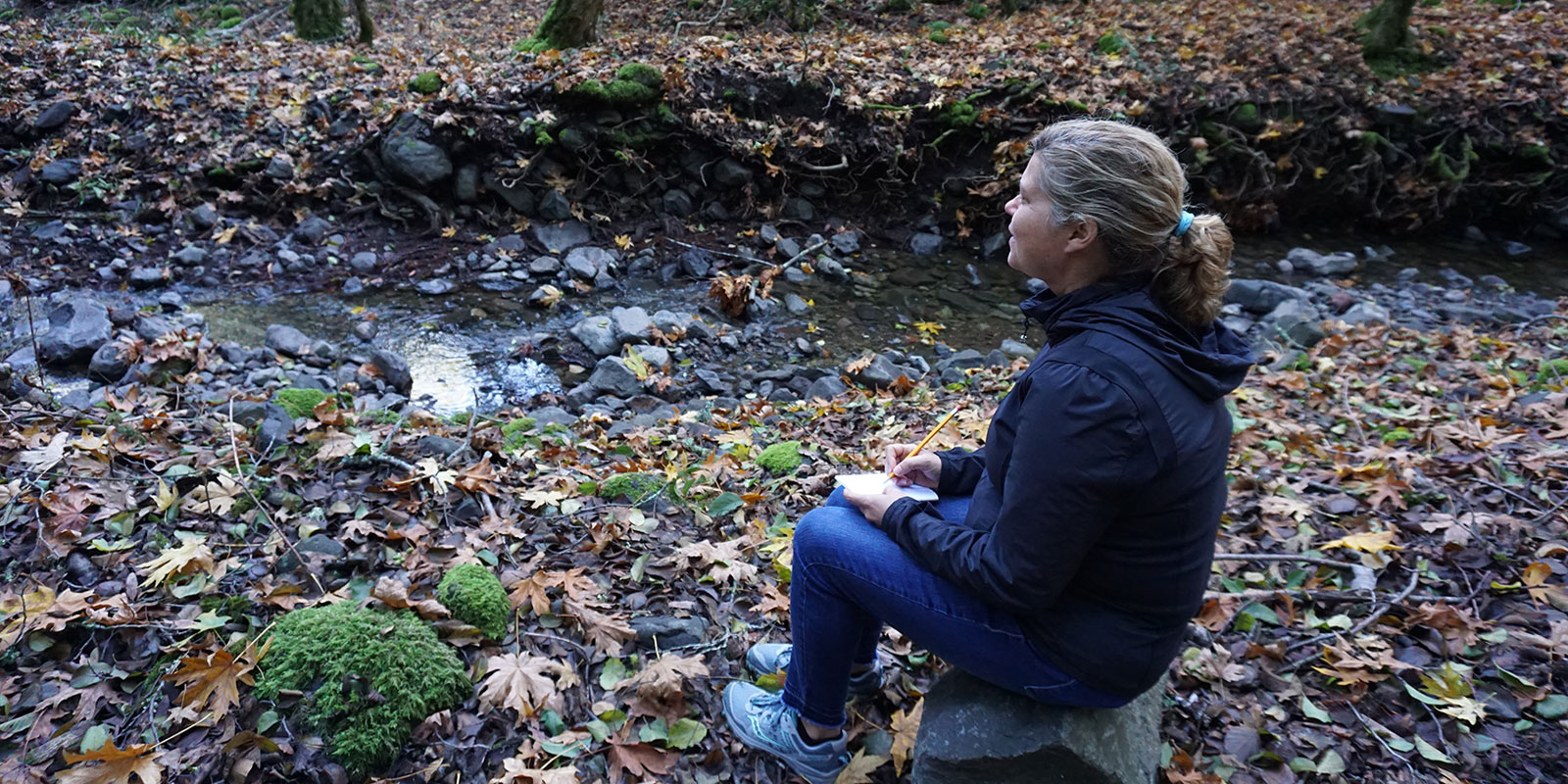The healing powers of nature
Given the chance, most people would happily spend the afternoon strolling beneath shady trees, in a blooming wildflower meadow, or along a beach listening to the surf. But what if such experiences had an actual effect on our physical health and wellbeing?
Recent science is finding evidence that they do. Being active in nature can help fight chronic diseases, relieve stress and depression, promote faster healing, stronger immune systems, and more. And new research is beginning to reveal why: Contact with nature affects us, mentally and physically, right down to our cells.
Living with Nature

![]()
Ah, nature. It can be peaceful, romantic and refreshing. And, as we’ve recently been reminded, it also has another face, one that’s violent, powerful and destructive.
Most of the time, we’re protected from nature's darker side by our advanced technologies and modern urban life. Where wildfires once raced through every decade or so, for the most part, they’ve been blunted and suppressed.
But while our modern lifestyle keeps us safer, it also increasingly separates us from direct contact with nature. This human/nature separation, a growing number of medical experts say, is contributing to declines in physical and mental health. And, it can leave us especially vulnerable to stress, trauma and anxiety when nature does disrupt daily life, as it recently did here.
In the raw, nature is formidable and challenging. But can nature also be a resource for health and healing? Intuitively, most of us sense it can. Now, science is beginning to bear that out.
Studying the Mind on Nature
Howard Frumkin, dean and professor of Environmental and Occupational Health Sciences at the University of Washington, is at the forefront of efforts to document nature as a public health resource. “We’re in the early days of building the evidence base, but we already know enough to act,” he says.
In a recent paper, Frumkin documented a long list of studies that show how contact with nature benefits mental and physical health in quite specific, and sometimes surprising, ways. One of the first clinical studies showed that surgical patients who had a view of trees out their hospital window healed faster, needed less pain medication and had fewer complications than patients with a view of a brick wall.
What about mental health? If you’ve ever come back from time outdoors feeling happier, less stressed, revitalized and more focused, you’re not alone. A growing body of science is finding there’s a measurable difference when we perform activities out in nature versus indoors.
Multiple studies have shown that adults who exercised in nature had lower levels of tension, confusion, anger and depression than when they exercised indoors. A recent Australian and UK study similarly found that people who visited parks for 30 minutes or more each week were much less likely to have high blood pressure or poor mental health than those who didn’t.

But why? Some of the effects appear to be psychological in origin. Natural scenes and activities can stimulate our sense of awe, making our concerns seem less significant, while stimulating the feeling that we’re part of something larger and grander. This can measurably reduce stress, anxiety and depression.
Scientists also now have tools that allow them to peer in on brain activity, to see what’s actually happening when we’re exposed to nature.
In one South Korean study, scientists used MRI to examine participants’ brains as they viewed either nature scenes or urban scenes. While scenes of nature activated regions of the brain linked to happiness, insight and free-thinking, urban images stimulated regions associated with stress, fear and anxiety.
A recent Stanford study looked at the brains of volunteers who walked in a field of oak trees or along a busy road. No change was observed in the urban walkers, but the nature walkers had suppressed activity in a region of the brain associated with rumination, which frequently occurs with depression.
The Nature Connection

Natural environments can also aid victims of disasters. People suffering from trauma or life-disrupting events such as hurricanes, floods and fires may benefit from time and activity in nature. In its handbook on psychological recovery for survivors, the National Child Traumatic Stress Network recommends the value of outdoor activities, particularly in groups. Likewise, studies of soldiers suffering from PTSD have shown lasting relief and improvement after participating in nature activities like backpacking and river rafting
Ari Hauptman, a Sonoma County pediatrician, supports giving “prescriptions” to patients to get outside and be active in nature, especially considering the low cost and benefits. Hauptman is encouraged by studies showing contact with the outdoors promotes social engagement and increased feelings of happiness and perspective, which all help improve mental health.
Prescribing Wellness with "Nature Heals"
Health in nature is also a specific focus at Sonoma County Regional Parks, which in recent years has prioritized culturally relevant and accessible programs to involve children, youth, and families with natural spaces.

Fortunately for Sonoma County residents, access to green spaces and nature has been a priority community concern, even before the scientific evidence began mounting to explain why it has such an impact.
Stephen Nett is a Bodega Bay-based Certified California Naturalist, writer and speaker.
Originally published March 2018.



 Translate
Translate